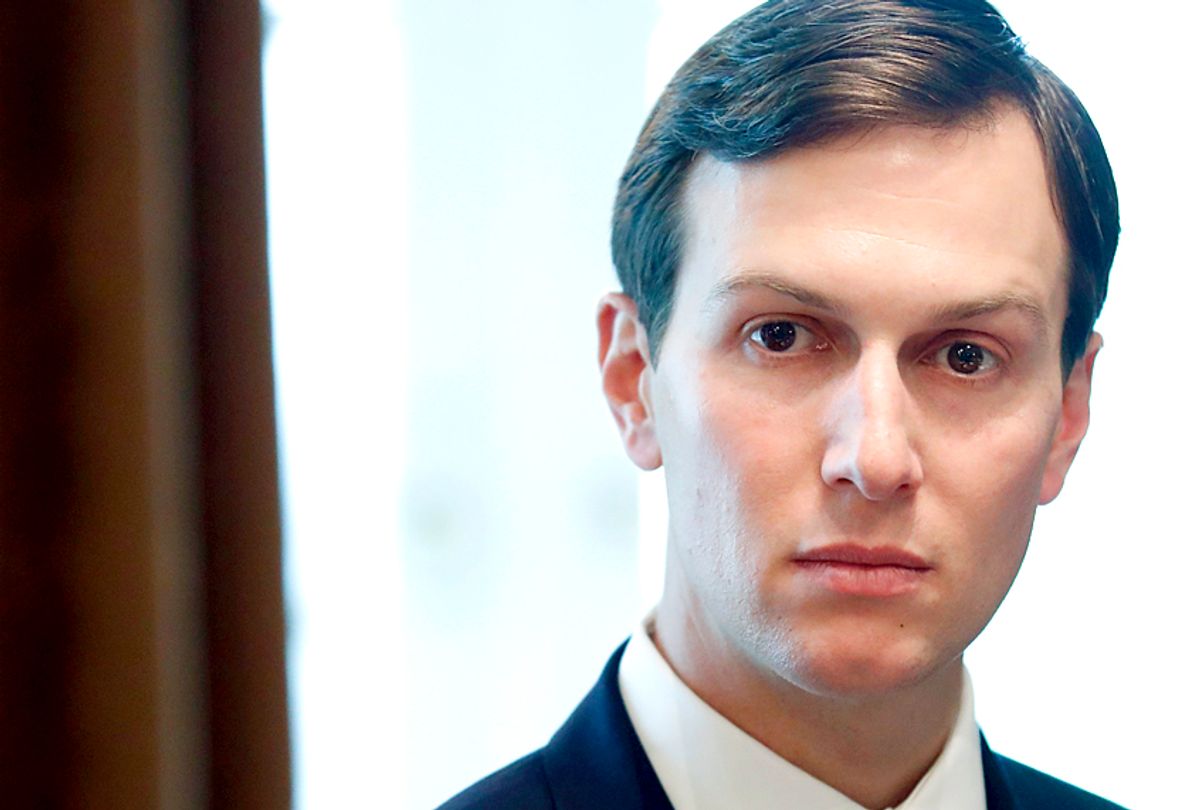During the roughly 30 years that Donald Trump talked about running for president before actually doing it, one of his most frequent refrains was that other countries were taking advantage of America, primarily thanks to our naive diplomats.
In a Washington Post review of hundreds of such remarks from Trump over the decades, China was far and away the country that he said was "laughing at" America for its incompetence.
"I know many of the people in China, I know many of the big business people, and they're laughing at us," Trump said in a 2010 Fox News interview. "They think we're so stupid."
In 2014, he went after the administration of then-president Barack Obama for its China policy.
"They're taking our jobs and we don't even know it, then, the president of China comes over and we have a state dinner for him, honoring him — what a wonderful guy," Trump said at a speech delivered at the National Press Club in Washington, adding that "he's laughing all the way back to China."
Since he became president, however, Trump's numerous broadsides against China have not really amounted to anything, despite the best efforts of his former counselor Steve Bannon, an avowed China skeptic who has been pushing for years to go after the country for its trade and monetary policies.
Obviously, the ongoing crisis involving the nuclear missile program of the erratic North Korean dictator Kim Jong-un, whose only real international ally is China, has played a role in Trump's rapprochement toward the rogue regime, but another factor has been the internal efforts of the president's son-in-law and top advisor, Jared Kushner, and China's own efforts to use him to steer foreign policy in its direction.
In an extensively reported piece, The New Yorker's Adam Entous and Evan Osnos write that Chinese diplomats have been trying to mold the completely inexperienced Kushner toward the authoritarian regime's goals. A key tool has been Kushner's family's investment portfolio and that of his wife, presidential daughter Ivanka Trump:
A Kushner project in Jersey City, which opened in November, 2016, reportedly received about fifty million dollars, nearly a quarter of its financing, from Chinese investors who are not publicly named, through a U.S. immigration program known as EB-5, which allows wealthy foreigners to obtain visas by investing in American projects. Kushner was also an investor, alongside prominent Chinese and Hong Kong businessmen, in multiple companies. He and a brother, Joshua Kushner, co-founded Cadre, a real-estate investment firm, which received funding from Jack Ma, the billionaire founder of Alibaba.
According to current and former officials briefed on U.S. intelligence about Chinese communications, Chinese officials said that [Ambassador to the U.S. Cui Tiankai] and Kushner, in meetings to prepare for the summit at Mar-a-Lago, discussed Kushner’s business interests along with policy. Some intelligence officials became concerned that the Chinese government was seeking to use business inducements to influence Kushner’s views.
Some of the intelligence officials that Entous and Osnos spoke to say the intercepted reports might have been Tiankai exaggerating to his superiors. Kushner strongly denies he has discussed his own investments with China or other countries.
Chinese officials have also purportedly tried to leverage Kushner and Ivanka Trump's friendship with Wendi Deng Murdoch, the ex-wife of conservative media mogul Rupert Murdoch, who has known the couple for a decade. In January, The Wall Street Journal reported that Wendi Murdoch was believed within some of parts of the U.S. intelligence community to be an asset of the Chinese government, even if she may not be deliberately assisting it.
Another potential leverage point for Chinese officials (or those in other nations) is Kushner's father, Charles, who has been desperately seeking financing to pay off a $1.2 billion debt on a Manhattan office building which Jared Kushner had purchased in 2007 when he was heading the family business, Kushner Companies. Since the purchase, both men have had difficulty getting tenants. In September of 2016, Jared Kushner had met with a Russian state-owned bank to try to get financing for it.



Shares